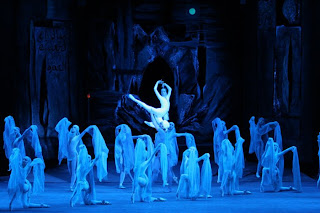


















Once I’ve heard that there was this stellar Rosenkavalier playing at
Overall, this definitely has been one very exceptional evening. Whatever the critics might say, it was one of the best Rosenkavalier you can get. The biggest disappointment of the night was without any doubt Hawlata, who completely lost his voice in the third Act. In the first two he was struggling with high notes, but was very strong dramatically, so he made up for it. He was definitely not helped by Sophie Koch, which was superb in the first two Acts (I was even starting to think how I liked her much better than Garanca, which I’ve heard recently in
Damrau was absolutely great. Her second act duet with Koch, was one the highlights of the evening. I’ve never heard this duet sung so beautifully, it was also helped with slow tempi from Thielemann. It sounded absolutely stunning.. My fist impression from Fleming was that she sounds and acts exactly as one imagines she would, and that there is really no difference whether she sings Capriccio, Tatiana or Marschallin. Well, the first Act final scene proved me wrong. She was fantastic, beautifully singing and acting superbly. I’ve really liked her a lot.
Jonas Kaufmann stopped the show. At first I was a bit set back with his dark colored voice, which sounded somehow inappropriate for the role (one always imagines Pavarotti in this role). But his voice was so powerful and immaculate, that the whole scene was absolutely breathtaking.. I might not like everything that Thieleamnn did with the score, especially the smoothing of some dramatic key points in the music, like the “twist” ending of the second act, or the quarrel between Ochs and Notari, but overall this was one of the most interesting readings of the Rosenkavalier ever. The second Act overture for me was a complete discovery, never imagined that it could sound so interestingly beautiful. I really loved his slow tempi, which really brought some new beauty to the score. (the show lasted close to 5 hours!!!).